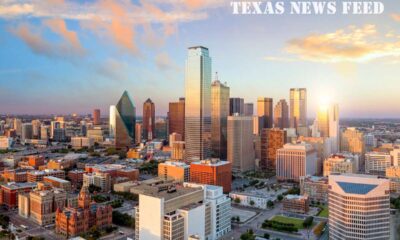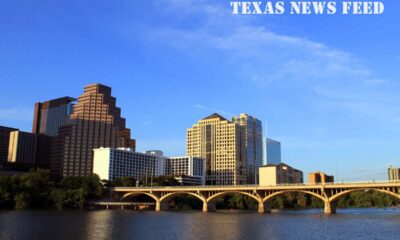(The Center Square) – As migration trends continue to show people are continuing to move to Texas, those who are the least likely to leave are native Texans, making Texas the “stickiest” state, the Federal Reserve Bank of Dallas said.
“Texas is the nation's stickiest state. The natives aren't leaving,” it said in an analysis of Census Bureau migration data.
A new report by a British publication cites the analysis highlighting state migration trends, saying, “Texas is the archetypal sticky state: huge, warm, with big cities, a strong identity and a diversified economy. It also keeps residents with features like a lack of state income tax and the 15th lowest cost of living in the country.“
The Dallas Fed first defined “stickiness,” explaining it is connected to economic health. “The share of people born in a state and who stay there can provide an important measure of its attractiveness to workers. The stickiness of native residents is also key to maintaining a stable (or growing) population and workforce, which is vital to economic growth,” it says.
The Dallas Fed analyzed Census Bureau American Community Survey data, which shows that 82% of native Texans were still living in Texas in 2021.
Other sticky states rounding out the top five, are North Carolina, Georgia, California and Utah. The top five least sticky states are Wyoming, North Dakota, Alaska, Rhode Island and South Dakota, according to the Fed's analysis.
“Notably, the least sticky states tend to see high levels of out migration of everyone—not just their native residents,” the Dallas Fed says.
It notes that Texas had the lowest out migration rate in 2021. “Overall outmigration numbers track everyone moving from one state to another state, including both people born there and those who moved there before leaving, making them a better indicator of population flows,” it explains.
The more sticky a state, the better economic conditions, the Fed's analysis found. “Without sufficient employment opportunities, native residents may be pushed to other states to seek good jobs.”
Gov. Greg Abbott has made a similar claim, noting that people are moving to Texas because of higher-paying jobs and lower cost of living. “The most dynamic economy in the nation is built by Texans,” he said last month after Texas again broke its own employment records.
“This continued momentum is a testament to the strength of our young, skilled, diverse, and growing workforce, our welcoming business climate, and the strategic investments we continue to make in education, workforce development, and critical infrastructure. These are the Texas advantages that help us attract and retain job-creating businesses that are growing in diverse industries across every region of our great state.”
In April, Texas' job growth rate tripled the U.S. rate and again set record-high levels for the greatest number of filled jobs, the greatest number of employed Texans, and the largest civilian labor force in state history, The Center Square reported.
April marked the 37th consecutive month of positive annual job growth, with growth in 46 of the last 48 months. In March, Texas broke the same records, with the Houston area adding the second-largest number of nonfarm jobs in the country, The Center Square reported.
Texas also continues to place first in nearly every top business ranking every year and every month.This year, Texas was named the best state for business for the 20th year in a row; Gov. Abbott was recognized as one of the most 100 influential people in the world by TIME Magazine, The Center Square reported.
“Texas truly is the Best State for Business and stands as a model for the nation,” Abbott said. “Freedom is a magnet, and Texas offers entrepreneurs and hardworking Texans the freedom to succeed. When choosing where to relocate or expand their businesses, more innovative industry leaders recognize the competitive advantages found only in Texas. The nation's leading CEOs continually cite our pro-growth economic policies—with no corporate income tax and no personal income tax—along with our young, skilled, diverse, and growing workforce, easy access to global markets, robust infrastructure, and predictable business-friendly regulations.”
In just the last year alone, The Center Square reported that Texas ranked first for having the best business climate and was awarded 12 consecutive years as the top state for attracting the most job-creating business relocations and expansion projects.
Four Texas cities are listed among the top in the country for career growth; six out of 10 counties in the U.S. listed as talent and economic powerhouses are in Texas.
More people moved to Texas in 2023 than any other state; Texas counties saw the greatest population gains by far in 2023. The Census Bureau cited Texas' record job growth and economic expansion as hallmarks of its success in 2023.
The Texas economy also grew faster than the national economy for six quarters in a row; Texas leads the U.S. in semiconductor manufacturing, and the Texas oil and natural gas industry broke multiple records in 2023.
Texas, as the oil and natural gas capital of the U.S., broke multiple records last year, reporting the highest ever totals in production, exports, refining outcomes, crude oil supply, and paid the most taxes in state history of more than $26.3 billion.





































